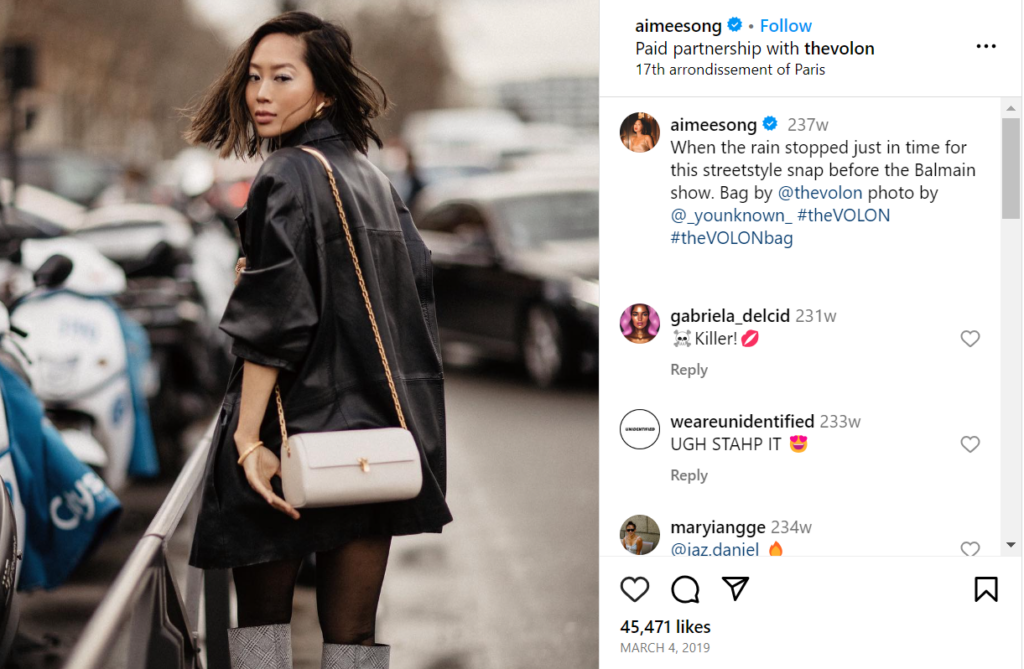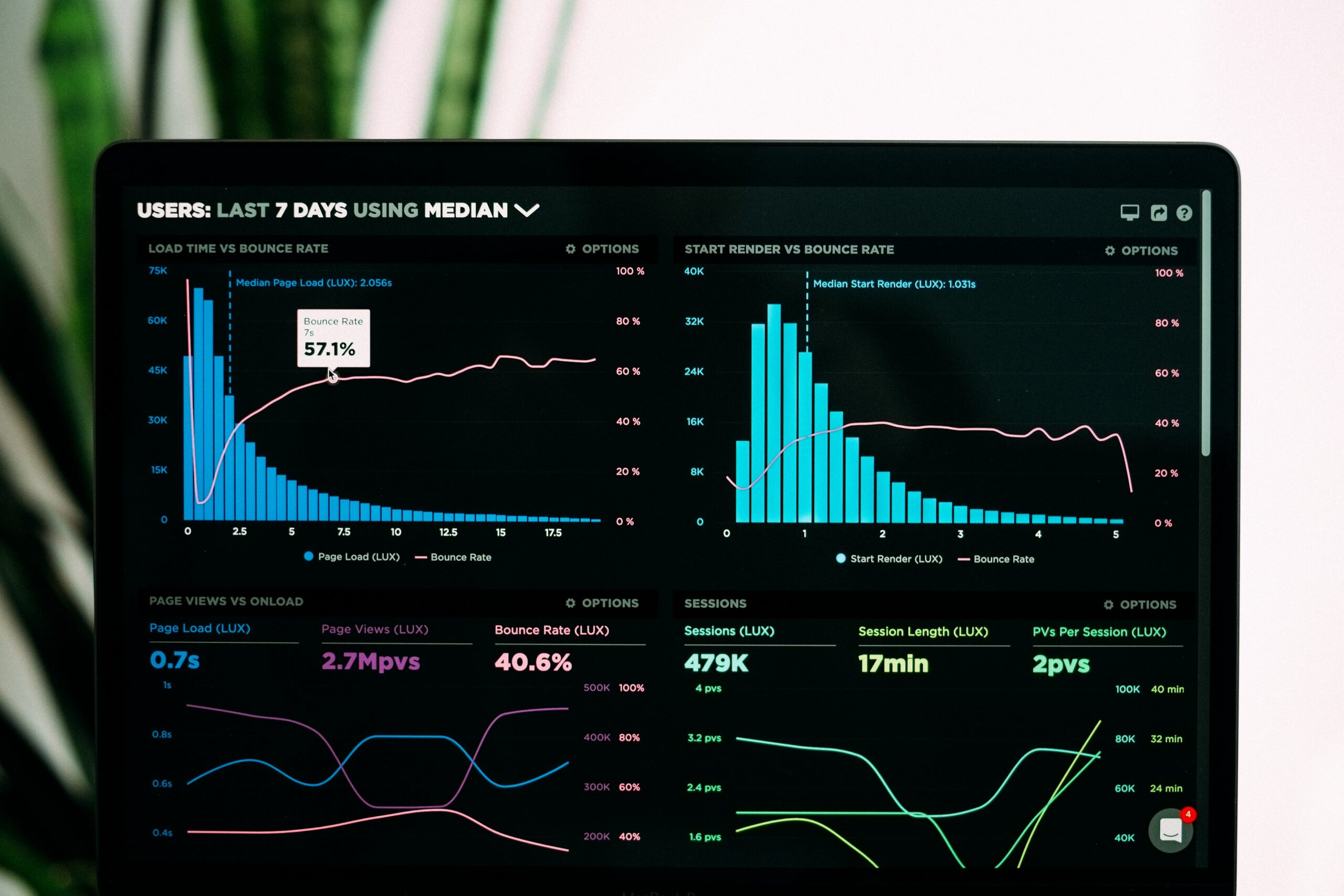Influencer marketing is not a flash-in-the-pan marketing trend. Over the past few years, the growth of the influencer marketing industry has proven that it’s a crucial part of a brand’s strategy.
Table of Contents
- Key Issues in Influencer Marketing Ethics
- Lack of Transparency
- Purchased Following
- Misleading Advertising
- Promoting Unethical Products
- What Are Marketing Ethics?
- How Can Marketing Ethics Be Applied to Influencer Marketing?
- The Importance of Ethics in Influencer Marketing
- How to Create Ethical Influencer Collaborations
- Include a Clear Disclosure in Every Post
- Include a Legal Disclosure Policy in the Media Kit
- Ensure Authenticity
- Relinquish Some Control
- Evaluate Campaign Performance
- Focusing on Influencer Marketing Ethics
But like all aspects of marketing, the rise of influencer marketing highlights a growing problem with influencer ethics. As key tools in the marketing world with the social capital to shape opinions and encourage purchasing decisions and behaviors, influencers’ power carries an ethical responsibility.
Key Issues in Influencer Marketing Ethics
As an emerging industry – one with plenty of scandals making headlines – influencer marketing abounds with ethical questions. Much of the media coverage assumes that influencers work outside of ethical standards and that influencers are just skirting the edges of legal guidelines. This is not unlike some of the general public’s opinion on marketing overall and the quest for profit over ethics.
Influencer marketing is not inherently unethical, but the principles guiding it are not as well understood as other aspects of marketing. And with some influencers ignoring the FTC guidelines for sponsored posts, shocking influencer controversies, the problem of “fake” influencers, and the growing conversation surrounding regulation, influencer marketing ethics need a stronger focus.
Some of the common ethical issues that arise in influencer marketing include:
Lack of Transparency
Deceptive advertising is one of the common problems in marketing and influencer-brand collaborations. While the FTC has regulations for influencer disclosures and some other industry-specific regulations, it’s not necessarily enough to ensure the whole of the influencer industry is behaving transparently.
Purchased Following
Some influencers deceive brands by purchasing their followers and engagement through likes, comments, and shares. This is done to artificially inflate their performance and attract brands, particularly for influencers who are trying to establish themselves in the industry, despite being unethical.
Misleading Advertising
One of the most common influencer campaigns is a product or service review from an influencer. The assumption with these campaigns is that the influencer has tried the product and is offering an honest opinion, but that’s not always the case. Sometimes, influencers not only mislead by promoting products they haven’t personally used but may make claims that aren’t supported by evidence, such as with beauty or food products.
Promoting Unethical Products
Promoting products that can affect people’s health or wellbeing is a big responsibility. If an influencer encourages a product that is known to have a negative impact on the public, such as tobacco or gambling products, it can venture into unethical marketing.
What Are Marketing Ethics?
The ethical norms and values for the marketing industry are established by the American Marketing Association (AMA). The AMA recognizes that the marketing industry not only serves brands but influences and impacts society.[1]
The AMA’s ethical values include:
- Honesty: Be truthful in all situations and with all stakeholders, rejecting manipulation, coercion, or approaches that can impact trust.
- Responsibility: Acknowledge the social obligations to stakeholders that come with marketing and economic power, consider societal stewardship, and strive to exceed industry or legal standards in protecting customers.
- Equity: Build a diverse workforce and support inclusive marketing practices while recognizing the needs of vulnerable market segments.
- Transparency: Strive to be open and honest in all communications and acknowledge feedback from customers, colleagues, and other stakeholders.
- Citizenship: Fulfill the economic, legal, philanthropic, and societal responsibilities that serve stakeholders and value the role the marketing plays in business and society.[2]
How Can Marketing Ethics Be Applied to Influencer Marketing?
In marketing, ethics refers to the moral principles and values that guide the actions and decisions taken by brands and marketers. It involves the application of ethical standards to every aspect of the marketing process, from product development to pricing to promotion.
At its core, ethical marketing is about avoiding dishonest or manipulative practices that can negatively impact audiences, consumers, stakeholders, and vulnerable groups.[3]
Social responsibility is another part of the equation. This refers to the obligation of companies to contribute to the betterment of society, the environment, and the public’s view of marketing. Social responsibility extends beyond following the letter of the law but having a positive impact on society.
Applying these concepts to influencer marketing includes striving for transparency, honesty, and authenticity in the promotion of brands, products, or services from content creators. This also means influencers should disclose collaborations, partnerships, or otherwise compensated relationships they may have with brands to ensure followers are aware of the nature of the business and what they’re promoting.
Influencer marketing through the lens of social responsibility requires content creators be aware of their clout and how that can positively or negatively impact their followers when they promote products and services. This also means taking care not to promote unsafe or unethical products or encourage harmful or irresponsible behavior.
Finally, influencers should use their platform for not just their personal brand but to support causes and raise awareness of social or environmental issues.
The Importance of Ethics in Influencer Marketing
According to a study from Sprout Social, more than three-quarters of consumers surveyed said they expect brands to be transparent on social media, including influencers.[4] Even celebrities, who often get more leniency, were held to that same standard based on 57% of respondents.
This reveals the importance of brands developing ethical guidelines and ensuring that their influencers or brand ambassadors adhere to them. With the emphasis on brand loyalty and building a thriving brand community, brand-influencer partnerships are clearly affected by ethics.
This works both ways, however. Brands need to be diligent in choosing the influencers they work with, but influencers must do the same to protect their own personal brand and credibility – the industry currency.
How to Create Ethical Influencer Collaborations
Both brands and influencers need to have clear ethical guidelines as a foundation to ensure high standards for influencer collaborations and campaigns.
Include a Clear Disclosure in Every Post
Influencer marketing ethics requires every sponsored post to have a disclosure. Some influencers and brands try to avoid the disclosure to ensure that the content is still compelling, but this can backfire.
Similarly, hiding the disclosure within a string of hashtags or ambiguous disclaimers like #partner, #sp, or #collab is skirting the rule from the FTC, which explicitly states to have a disclosure that’s “hard to miss.”[5]
Engaging in these behaviors is unethical and deliberately misleading in trying to make a post appear organic when it’s been sponsored. Disclosures should always be clear, close to the marketing message, and included in both audio and videos. When in doubt, influencers should ensure that followers instantly know it’s a sponsored post.
Here’s an example of a disclosure from Aimee Song for The Volon:

Source: Instagram
Include a Legal Disclosure Policy in the Media Kit
Brands can have a clear outline for marketing ethics, but influencers don’t always comply. This can leave brands with legal, financial, and reputational damage without any potential recourse.
Including an explicit legal disclosure policy in the media kit with other campaign requirements and ethical guidelines can offer some protection for brands. Once that is signed and the partnership is agreed upon, the influencer becomes legally bound to the brand’s disclosure policy. If they fail to comply, the brand has legal recourse.
Ensure Authenticity
Generally, working with influencers who are authentic and ethical improves the likelihood of ethical campaigns. These influencers hold themselves to high ethical standards and display honesty and transparency with their followers, making them a good alignment for an ethical brand.
It’s crucial for brands to thoroughly vet potential influencers to ensure that they – and their content – is ethical, responsible, and trustworthy. Many influencers will have previous sponsored posts that may have been created for brands, showing that they already adhere to disclosure guidelines.
Brands should also pay attention to their language and whether they’re overly promotional in their collaborations.
Relinquish Some Control
Brands often embark on collaborations and try to control every aspect of the influencer campaign, including pre-written captions for sponsored posts. This not only defeats the purpose of working with an influencer, but it tends to stand out against the rest of the influencer’s natural content.
This may not be strictly unethical, but it’s not authentic. Brands should partner with influencers who align with their brand personality and voice, not based on their level of clout. Otherwise, the micromanagement will result in inauthentic content that could potentially cost both the brand and influencer some trust from the audience and future collaborators.
A great example of how this can go wrong is Scott Disick’s famous Instagram caption that included the brand’s instructions:

Source: The Drum
Evaluate Campaign Performance
Tracking influencer performance is not always easy, especially with multiple influencer campaigns. Evaluating the ethical and commercial impact of collaborations and reviewing the audience’s response and interaction, customer loyalty, and positive social impact is an important part of continually improving campaigns from an ethical perspective, however.
In the digital environment, the most effective way to optimize marketing budgets and make more informed decisions is by evaluating key performance indicators (KPIs).
Focusing on Influencer Marketing Ethics
Influencer marketing ethics is a growing concern for consumers, brands, and regulatory agencies, especially as it becomes a more prominent aspect of brand marketing strategy and consumers increasingly rely on influencer recommendations. Brands and influencers can shield themselves from the potential legal and reputational ramifications and improve success in influencer marketing by following ethical best practices.
Sources:
[1] https://www.ama.org/ama-statement-of-ethics/
[2] https://www.ama.org/ama-statement-of-ethics/
[3] https://www.ama.org/ama-statement-of-ethics/
[4] https://sproutsocial.com/insights/data/social-media-transparency/
[5] https://www.ftc.gov/business-guidance/resources/disclosures-101-social-media-influencers





